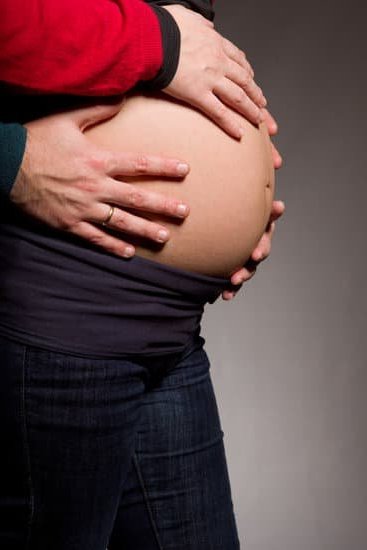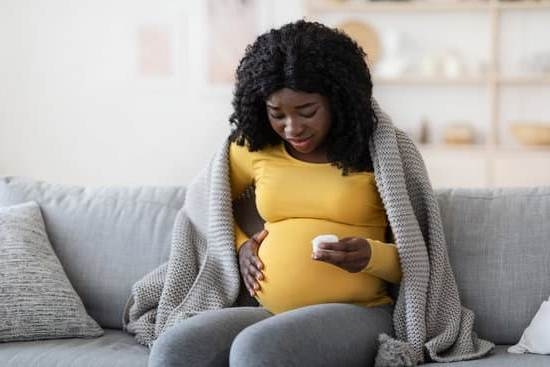Pregnancy is a beautiful journey filled with unique experiences, but it also comes with its fair share of discomforts, one of which is pregnancy cramps. Many expectant mothers wonder, “How long do pregnancy cramps last?” These cramps can be concerning, especially for first-time moms, so understanding their duration and causes is crucial for a smoother pregnancy experience.
Pregnancy cramps are a common occurrence during the different stages of pregnancy, typically caused by the changes happening in your body to accommodate the growing fetus. It’s essential to differentiate between normal cramps and those that could potentially signal something more serious. By gaining a better understanding of these cramps, expectant mothers can navigate their pregnancy journey with more confidence and ease.
In this article, we will delve into the causes behind pregnancy cramps, the various types expectant mothers may experience, and most importantly, how long you can expect them to last. Additionally, we will explore factors that influence the duration of these cramps and provide tips on managing the discomfort effectively. Stay tuned to learn more about pregnancy cramps and how to best care for yourself during this special time in your life.
Causes of Pregnancy Cramps
During pregnancy, experiencing cramps is a common occurrence for many women. These cramps can range from mild discomfort to more severe pain, leading many expectant mothers to wonder how long do pregnancy cramps last. Understanding the causes behind these cramps can help shed some light on this question and provide reassurance to pregnant women.
Uterine Growth and Stretching
One of the primary reasons for pregnancy cramps is the growth and stretching of the uterus as the baby develops. As the uterus expands to accommodate the growing fetus, it puts pressure on surrounding muscles and ligaments, causing discomfort and occasionally sharp pains. These cramps typically occur during the first trimester as the uterus starts to change in size and shape, but they can also persist throughout the entire pregnancy.
Hormonal Changes
Fluctuations in hormone levels during pregnancy can also contribute to cramping. The increase in progesterone and other hormones can affect the muscles in the uterus, leading to contractions and spasms that cause discomfort. Additionally, hormonal changes can impact blood flow to the pelvic area, further exacerbating cramping sensations. It’s important for pregnant women to stay hydrated and maintain a healthy diet to help balance these hormonal shifts and alleviate cramps.
Types of Pregnancy Cramps
Pregnancy cramps can be a common occurrence for many expectant mothers and can vary in intensity and duration. It is important to differentiate between normal cramps, which are typically harmless, and potential warning signs that may indicate a more serious issue. Normal pregnancy cramps are often due to the uterus expanding and growing to accommodate the developing baby.
These cramps may feel similar to menstrual cramps and are usually mild and short-lived. They can occur throughout the pregnancy as the body goes through various changes.
On the other hand, there are certain types of pregnancy cramps that may be cause for concern. If you experience severe or persistent abdominal pain, especially if it is accompanied by other symptoms such as vaginal bleeding, fever, chills, dizziness, or back pain, it is important to seek medical attention immediately.
These could be signs of a more serious condition like ectopic pregnancy or preterm labor. Understanding the difference between normal discomfort and potential warning signs is essential in ensuring a healthy pregnancy.
The duration of pregnancy cramps can vary from woman to woman and even from pregnancy to pregnancy for the same individual. Generally, normal pregnancy cramps may last for a few seconds to a few minutes at a time.
They may come and go throughout the day but should not be constant or increasing in intensity. If you are wondering “how long do pregnancy cramps last,” it’s essential to monitor your symptoms closely and consult your healthcare provider if you have any concerns about the duration or intensity of your cramps.
| Types of Pregnancy Cramps | Differentiating Between Normal Cramps and Warning Signs |
|---|---|
| Normal Cramps | Mild, short-lived, similar to menstrual cramps; Occur due to uterus expansion |
| Potential Warning Signs | Severe or persistent pain with other symptoms like bleeding or fever; Could indicate serious conditions |
| Duration | Lasts for seconds to minutes; Should not be constant or increasing in intensity |
Duration of Pregnancy Cramps
During pregnancy, experiencing cramps is a common occurrence for many women. But the question often arises, “How long do pregnancy cramps last?” While every woman’s experience can vary, it’s essential to understand the typical duration of these cramps to ensure a healthy and comfortable pregnancy journey. Here’s what you need to know about the duration of pregnancy cramps:
- Normal Pregnancy Cramps: In most cases, mild cramping during the early stages of pregnancy is normal and usually doesn’t last long. These cramps are often associated with the stretching and growth of the uterus as your baby develops. Typically, these cramps can last for a few minutes to a couple of hours and may come and go throughout the day.
- Potential Warning Signs: While some cramping is expected during pregnancy, persistent or severe abdominal pain could indicate a more serious issue. If you experience intense cramping that lasts for an extended period or is accompanied by other symptoms like vaginal bleeding or fever, it’s crucial to seek medical attention immediately.
Factors such as individual tolerance for pain, the stage of pregnancy, and underlying health conditions can influence how long pregnancy cramps last. As your body adjusts to the changes brought on by pregnancy, you may notice variations in the duration and intensity of these cramps. It’s essential to stay in tune with your body’s signals and communicate any concerns with your healthcare provider to ensure a smooth and healthy pregnancy journey.
- Hydrate: Staying well-hydrated can help alleviate muscle tension and reduce the frequency of cramps.
- Rest: Getting plenty of rest and practicing relaxation techniques can help ease discomfort associated with pregnancy cramps.
- Warm Compress: Applying a warm compress or taking a warm bath can provide relief from abdominal discomfort caused by cramping.
By understanding how long pregnancy cramps typically last and staying proactive in managing discomfort through self-care practices and open communication with your healthcare provider, you can navigate this aspect of pregnancy more confidently. Remember that each woman’s experience is unique, so trust your instincts and seek professional guidance when needed to ensure a safe and comfortable pregnancy journey.
Factors That Influence the Duration
Pregnancy cramps can be a common and sometimes uncomfortable experience for expectant mothers. Understanding the duration of these cramps is essential in managing expectations and knowing when to seek medical advice. The duration of pregnancy cramps can vary from woman to woman and even from one pregnancy to another. In general, pregnancy cramps can last anywhere from a few seconds to a few minutes. However, some women may experience prolonged cramping throughout their pregnancy.
One key factor that influences the duration of pregnancy cramps is the stage of pregnancy. During the first trimester, as the uterus begins to expand and grow to accommodate the developing fetus, women may experience mild cramping known as implantation cramps. These usually last only a few days to a week. In the second and third trimesters, as the baby continues to grow, round ligament pain can cause sharp or stabbing pains in the lower abdomen or groin area.
Another factor that can affect how long pregnancy cramps last is hydration levels. Dehydration can lead to muscle contractions and spasms, which may exacerbate cramping during pregnancy. Ensuring adequate fluid intake throughout the day can help alleviate some of these discomforts.
Additionally, factors such as physical activity, stress levels, and overall health can all play a role in determining the duration of pregnancy cramps. If you are concerned about the intensity or duration of your cramps, it’s always best to consult with your healthcare provider for personalized advice and guidance.
| Factors | Influence |
|---|---|
| Stage of Pregnancy | Can vary with each trimester |
| Hydration Levels | Dehydration may exacerbate cramping |
| Physical Activity | Can impact intensity of cramps |
Managing Pregnancy Cramps
Stay Hydrated
One important way to manage pregnancy cramps is to ensure you stay hydrated. Dehydration can exacerbate cramps and increase discomfort, so it is essential to drink plenty of water throughout the day. Aim for at least 8-10 glasses of water daily to keep your body well-hydrated. You can also include hydrating foods such as fruits and vegetables in your diet.
Practice Gentle Exercise
Engaging in gentle exercise can help alleviate pregnancy cramps. Activities like prenatal yoga, swimming, or walking can improve circulation and reduce muscle tension, which may help ease cramping. Make sure to consult with your healthcare provider before starting any new exercise routine during pregnancy.
Heat Therapy
Applying heat to the abdomen can be an effective way to relieve pregnancy cramps. A warm compress or heating pad placed on the affected area can help relax muscles and reduce pain. Just be sure to use a low heat setting and limit the time you apply heat to avoid any potential harm to the baby. Always check with your doctor before using heat therapy as a remedy for cramps during pregnancy.
By incorporating these tips into your daily routine, you may find relief from pregnancy cramps and experience a more comfortable journey throughout your pregnancy. Remember that every woman’s experience is unique, so it’s crucial to listen to your body and seek guidance from a healthcare provider if you have any concerns about how long do pregnancy cramps last or if you experience severe or persistent pain.
When to Seek Medical Help
During pregnancy, experiencing cramps can be a common occurrence for many women. However, it is essential to differentiate between normal cramps associated with the changes happening in the body and those that may signal a more serious issue. Knowing when to seek medical help is crucial for the well-being of both the mother and the baby. Here are some warning signs that indicate it’s time to see a healthcare provider:
- Severe or persistent abdominal pain: If you are experiencing intense and constant pain in your abdomen that does not seem to subside, it could be a cause for concern. This type of pain should never be ignored during pregnancy.
- Vaginal bleeding: Any type of vaginal bleeding during pregnancy should always be evaluated by a healthcare provider. It could indicate various issues such as miscarriage, placental abruption, or other complications.
- Fever or chills: If you are experiencing fever or chills along with cramps, it could be a sign of an infection. Infections during pregnancy can pose serious risks, so it’s important to seek medical attention promptly.
If you are unsure about your symptoms or feel something just isn’t right, don’t hesitate to contact your healthcare provider. It’s always better to err on the side of caution when it comes to the health and safety of you and your baby. Remember that every pregnancy is different, so what might be normal for one person may not be for another.
It is essential to have open communication with your healthcare provider throughout your pregnancy journey. They will be able to provide guidance, support, and necessary medical interventions if needed. Trust your instincts and never hesitate to reach out for help if you have any concerns about how long do pregnancy cramps last or any other symptoms you may be experiencing during this special time in your life.
Conclusion
In conclusion, pregnancy cramps are a common discomfort that many expectant mothers experience at some point during their pregnancy. Understanding the causes and differentiating between normal cramps and potential warning signs is crucial in ensuring the well-being of both the mother and the baby. While cramps during pregnancy can vary in intensity and frequency, it is essential to know how long do pregnancy cramps last to gauge when medical attention may be necessary.
Various factors can influence the duration of pregnancy cramps, such as the stage of pregnancy, individual pain tolerance, and underlying medical conditions. It is important for pregnant women to listen to their bodies and seek ways to manage the discomfort effectively. From staying hydrated to practicing relaxation techniques, there are several tips and tricks that can help alleviate pregnancy cramps and promote overall well-being during this crucial time.
However, it’s crucial for expecting mothers to be aware of warning signs that may indicate a more serious issue. If pregnancy cramps are accompanied by severe pain, bleeding, fever, or other concerning symptoms, seeking medical help promptly is advised. Ultimately, by staying informed about pregnancy cramps and knowing when to seek help, mothers-to-be can navigate this aspect of pregnancy with confidence and peace of mind.
Frequently Asked Questions
How Long Do Cramping Last in Early Pregnancy?
Cramping in early pregnancy can vary in terms of duration. Typically, they may last for a few seconds to a few minutes. However, if the cramps are severe or persistent, it is important to consult a healthcare provider.
Is It Normal to Cramp for Days During Pregnancy?
Cramping for days during pregnancy is not necessarily abnormal, especially in the early stages. It can be due to the stretching of the uterus and ligaments as the body adjusts to accommodate the growing baby. However, if the cramps are severe or accompanied by other symptoms, it is best to seek medical advice.
Is Cramping Normal at 5 Weeks?
Experiencing cramping at 5 weeks of pregnancy is common as the body undergoes changes to support the developing fetus. These cramps are usually mild and may feel like menstrual cramps. However, if the cramping becomes severe or is accompanied by heavy bleeding, it is crucial to contact a healthcare provider for further evaluation and guidance.

Welcome to my fertility blog. This is a space where I will be sharing my experiences as I navigate through the world of fertility treatments, as well as provide information and resources about fertility and pregnancy.





